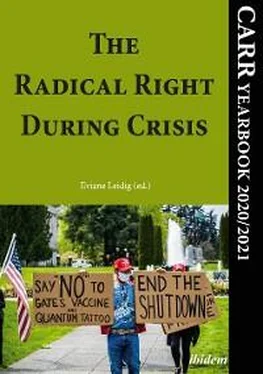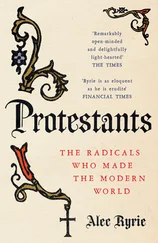In court the police presented their analysis of Manshaus’ activities in the last two years: activities that led to him becoming a Nazi, an anti-Semite, and a terrorist. He had searched for and visited Internet sites with key words such as “Nazi”, “nigger”, “Jew”, “genocide”, “Breivik”, “Holocaust”, “NRM”, “4Chan” and “8Chan”. Manshaus had showed an interest in 4Chan since his mid-teens but his engagement intensified in 2018. In court, he complained that anyone interested in something deviant in relation to the Holocaust or immigration was being subject to a “witch hunt”. Moreover, he had also tried to convince friends of conspiracy theories and Holocaust denial. Furthermore, he had expressed hatred of Jewish people and showed an interest in the school shootings in the US and Finland. He was also fascinated by alt-right Internet culture and had written about race and religion in his diaries and of a ‘psychological war against my people’. The security services say his relation to reality had started to show signs of radicalisation in 2018. Philip Manshaus’ internet activity escalated after the Christchurch attack when he also started searching for weapons for sale and avidly read the bible to find viewpoints against racial mixing. He had also read the racist ideologue David Lane who had been imprisoned a third of his life for murder of a Jewish journalist and used Lane’s “14 words” in court (i.e., “We must secure the existence of our race and a future for White children”). 10
In the wake of Breivik’s (successful) and Manshaus’s (failed) attacks, Norwegian society and the security services have their work cut out. There is a relatively small number of neo-Nazi groups and individuals in Norway but, left radicalised by the Internet and international events, they are more likely to carry out violent attacks than before. Klungtveit says neo-Nazism is no longer taboo among the younger generation, but that it is an international phenomenon. 11In Norway, the media, in the name of “freedom of speech”, is facilitating agency and a space for radical right to voices to be heard, helping to normalise them and therefore ultimately make such attacks more likely in the future.
Dr Mette Wiggen is a Senior Fellow at CARR and lecturer in politics and international studies at the University of Leeds.
1“Norway: Mosque Attacker Sentenced to 21 Years ‘Preventative detention’,” Deutsche Welle , August 12, 2019, https://www.dw.com/en/norway-mosque-attacker-sentenced-to-21-years-preventive-detention/a-53771965.
2Mette Wiggen, “The Nordic Resistance Movement”, CARR Insight Blog , March 24, 2020, https://www.radicalrightanalysis.com/2020/03/24/the-nordic-resistance-movement/.
3Harald S. Klungtveit, Nynazister Blant Oss: På Innsiden av Den Nye Høyreekstremismen (Oslo: Kagge Forlag, 2020).
4Alf Bjarne Johnsen and Morten S. Hopperstad, “Gransker PST’s Tipshåndtering før Moske-Angrepet,” VG , February 19, 2020, https://www.vg.no/nyheter/innenriks/i/Jo4pyj/gransker-psts-tipshaandtering-foer-moske-angrepet.
5Dag Herbjørnsrud, “Slik Feilet Bærum-Politiet i Rulleskisaken”, Utrop , May 5, 2020, https://www.utrop.no/plenum/ytringer/216129/.
6Fouad Acharki, Martin W. H. Zondag, and Victoria Wilden, “Manshaus-Saken—Svært Uheldig at Politi-og PST-Gransking Ikke er Klar,” NRK , May 6, 2020, https://www.nrk.no/osloogviken/gransking-av-politiet-og-pst-koronautsatt-1.15001569Deleayed case
7Fosen Folk School—Norway’s organic folk school, https://www.fosen.fhs.no/en/.
8Amanda Nordhagen Walnum, “Rektor: -Ønsker at Vi Varslet Videre,” Dagbladet , August 14, 2019, https://www.dagbladet.no/nyheter/rektor---onsker-at-vi-varslet-videre/71485857.
9Oda Ording, “Venninne Møtte Manshaus Ett År Før Angrepet: - En Dommedagsfølelse,” VG , May 15, 2020, https://www.vg.no/nyheter/innenriks/i/70rzpw/venninne-moette-manshaus-ett-aar-foer-angrepet-en-dommedagsfoelelse.
10Jon Færseth, “David Lane og de 14 Ordene,” Fri Tanke , May 7, 2020, https://fritanke.no/david-lane-og-de-14-ordene/19.11429
11Klungteveit, Nynazister Blant Oss .
Canada Filed the First Incel Terrorism Charge. How Do We Combat This Threat?
Cristina Ariza
In May 2020, the police uncovered evidence that the attacker who killed a woman and injured another at an erotic massage parlour in Canada in February 2020 was inspired by incel ideology. 1Since this revelation the attack has been treated as terrorism, making it the first time that terrorism charges are being applied in Canada to a suspect not inspired by Islamist extremism.
Incels are short for “involuntary celibates”, a loosely organized network of men that blame women for refusing to engage in sexual relationships with them. Incels believe there are three main groups in society: the alphas, referred to as “Stacys” and “Chads”, who are deemed the most attractive women and men; the betas, or “normies”, who are average-looking; and the incels, who are portrayed as undesirable to women and are therefore denied sex. 2
The movement has not always been violent or misogynistic. One former incel told Vox about how he used to engage in online chats in the 2000s to ask for advice from female users about how to talk to women. 3But in the last couple of years, the movement has embraced clear sexism and misogyny, sometimes culminating in acts of violence. 4
Terrorism and violence: how much of a risk does incel ideology pose?
February 2020 did not mark the first time that incels have targeted Canada. In 2018, a man drove his van into pedestrians at a busy street in Toronto, later telling police that he belonged to an ‘incel rebellion’, but he failed to be charged with terrorism. 5The teenager who attacked the massage parlour knew about the Toronto attacker, but also about other key incel figures like Elliot Rodger. Rodger, who killed six people and injured fourteen at a California university campus before committing suicide in 2014, is probably the most well-known figure in the incel movement, to the point that experts have likened his position within the incel community to Anders Breivik’s regarding the wider radical right. 6He too, as Breivik, wrote a manifesto entitled “My Twisted World” in which he vowed revenge against women at sororities for refusing to have sex with him. 7
There have been other similar attacks in Oregon (2015), New Mexico (2017), and Florida (2018 and 2019), leaving up to fifty dead in North America. 8Incels have been a target of arrests too: just earlier this year a man was arrested in California for harassing two girls online who had rejected his sexual advances. 9Terrorism experts Bruce Hoffman and Jacob Ware have warned that the terrorist threat from incels is very real and that it poses specific challenges to security forces, as attackers tend to plot alone and often do not belong to organized groups. 10Likewise, most of these conversations have moved to darker webs and less-policed sites like encrypted chat platform Telegram and gamer site Discord. 11
In a sense, the incel movement is the ultimate expression of the decentralized nature of the wider radical right, down to the way the discourse is often driven by memes, jokes and “shitposting” on online forums and message boards. Therefore, banning or targeting a specific group is unlikely to yield success. As such, we require a multifaceted response that understands the nature of the incel threat and how it relates to the dynamics of the global radical right movement.
The difficulty of fighting diffuse ideologies: incels and the radical right
The manosphere—the umbrella term that brings together all misogynistic movements—includes not only incels, but men’s rights activists, “pick up artists”, and the so-called movement “Men Going Their Own Way (MGTOW)”, the latter of whom intentionally avoids contact with women.
Читать дальше












